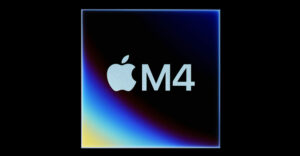
There has been much wailing and gnashing of teeth among vendors of mobile devices and computers since Apple launched the first iPad in 2010.
Competitors frantically began announcing plans to bring out their own tablets, most of them running on Google’s Android operating system.
Since then, Google has unveiled Android 3.0, aka “Honeycomb,” which is tailored to tablets. A bunch of Honeycomb-based tablets were announced at CES last January, including Motorola’s Xoom; Acer’s Iconia Tab A500; the Asus Eee Pad MeMo, Transformer and Slider; the Dell Streak 10; and the LG G-Slate.
Software-wise, Android could pose a strong rival to iPad.
“Honeycomb is superior to iOS 4.3,” Andrew Eisner, director of community and content at Retrevo, told TechNewsWorld.
Several more vendors have also announced tablets running on earlier versions of Android and on Microsoft Windows 7. And Research In Motion has its BlackBerry PlayBook, which runs its QNX operating system.
In February, HP unveiled its TouchPad tablet, which runs the webOS operating system HP acquired when it purchased Palm.
But even with all these competing tablets on the market or about to enter it in the coming months, iPad 2 sales appear to be strong.
So which, if any, of the challengers has enough muscle to make Apple sit up and notice?
Challengers for the Crown
Initially, the Motorola Xoom was seen as posing a real threat to the iPad. Several analysts, including Rob Enderle, principal analyst at the Enderle Group, stated that its features went beyond those available in the original iPad.
The Xoom has two cameras, a dual-core processor which is much faster than the first iPad’s, and it supports Adobe Flash. The key advantage, though, was that faster processor.
The Motorola Xoom was launched on the Verizon Wireless network Feb. 24.
Samsung’s seven-inch Galaxy Tab, which had been launched outside the United States in October, was reported to be outselling the iPad at one point, with the Korean consumer electronics giant claiming by January that sales had hit the 2-million-unit mark. However, Samsung revealed during its earnings call in February that this number was essentially incorrect.
The iPad 2 hit retailers’ shelves March 11, and Samsung has responded by unveiling new tablets at 8.9 and 10.1 inches.
Perhaps the only other serious contenders are RIM, with its PlayBook, which will hit retail shelves April 19; and HP’s TouchPad, which is scheduled for release sometime in June.
The Amazon Effect
Another possible threat to the iPad is Amazon, which may just have what it takes to be a real tablet contender.
Amazon has just opened its own Android app store — although it’s being sued by Apple for using the term “app store.”
However, the online retail giant hasn’t commented on speculation that it might be planning to bring out a tablet.
If Amazon did bring out a tablet, however, it has the content, marketing and the distribution clout to take on Apple.
Who’s Your Tablet Daddy?
The competition looked set to nibble at Apple’s tablet lunch until Cupertino popped out the iPad 2. With a dual-core processor, two cameras, and other features that match or beat the competition, it restored Apple’s dominance in the tablet market.
“Apple came out with the iPad 2 in the nick of time to level the playing field, and consumers are finding that its ease of use and the way it just fits into all their Apple products is irresistible,” Retrevo’s Eisner remarked. “There also is the cachet of having an Apple product,” he added.
It isn’t just the iPad 2’s features that give it the edge; it’s the pricing. Apple has tied up suppliers with long-term contracts, and its sheer volume of orders ensures it gets the best possible deals.
Competitors either have to eat the extra costs or price their devices higher than the iPad, as Motorola has done with the Xoom. At $600, the cheapest Xoom is priced the same as an iPad with the same amount of storage memory, but Apple also offers a model with less memory for $100 less. $600 can also buy a Xoom with cellular data capabilities, but that price includes a service contract with Verizon, adding an additional monthly expense.
“Conventional wisdom would have an army of Android tablets outflanking and overpowering a single provider like Apple, and that hasn’t turned out to be the case primarily because none of the competitors are able to offer something equivalent at a much lower price,” Eisner stated.
Further, the Android market is divided because of fragmentation of the operating system — there are lots of different versions of Android running on the various devices out there.
There are even reports that Motorola is planning to develop its own Web-based operating system to get around the fragmentation problem, but company spokesperson Jennifer Erickson dismissed them.
“Motorola is committed to Android,” Erickson told TechNewsWorld.
No Going Mano a Mano With AAPL
“I don’t believe there is a serious iPad challenger yet,” Peter Eckert, cofounder of projekt202, told TechNewsWorld. “They are all missing the point of what’s great about the iPad.”
Most competitors are trying to beat the iPad on features, and that’s “totally missing the boat,” Eckert said.
“The iPad and iPhone are about user experience and not about hardware features,” Eckert pointed out. “The key to becoming a real challenger is actually content, relevance and user experience.”
The one device that has the capability to be more meaningful is Barnes & Nobles’ Nook e-reader, Eckert suggested.
“The Nook’s very well designed and focused and provides relevance to users’ lives,” Eckert explained. “And it doesn’t try to compete with the iPad, which is very smart.”
There’s one other factor that’s pretty much has doomed the competition — time to market. The iPad 2’s out there sucking up all the available dollars, with long lines of potential buyers still queuing up outside stores, while many competitors with potentially strong products have yet to get their wares on the shelves.
In the future, Motorola and Dell might provide some real competition to the iPad 2, Eckert hinted.
“Motorola’s restructured mobile division is cooking up some things that could be interesting, and Dell is working on a game changer,” Eckert elaborated.





















































